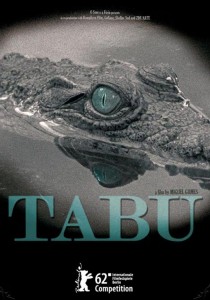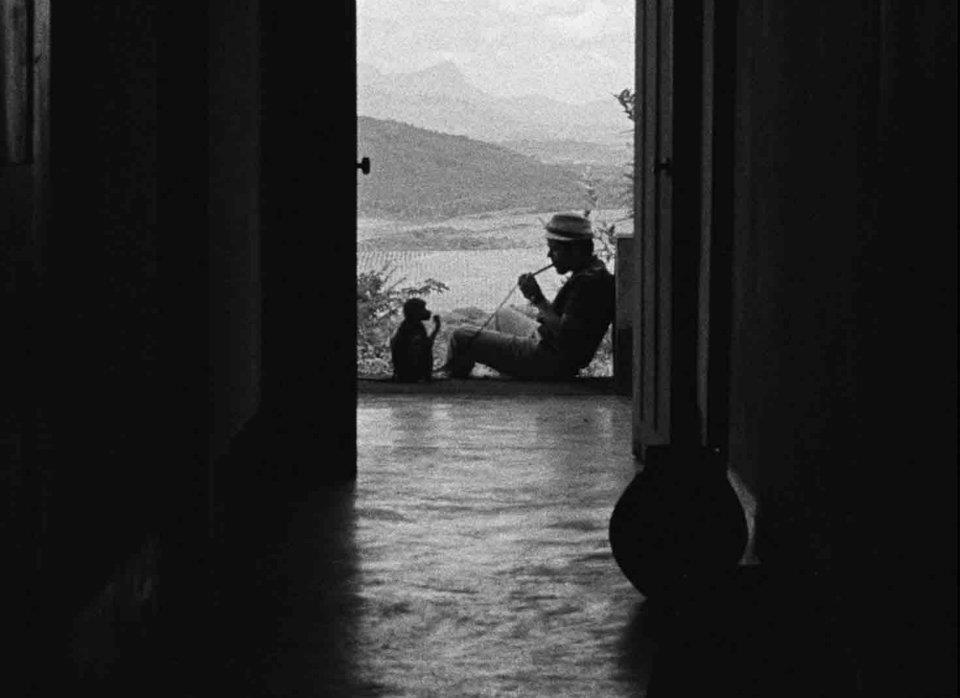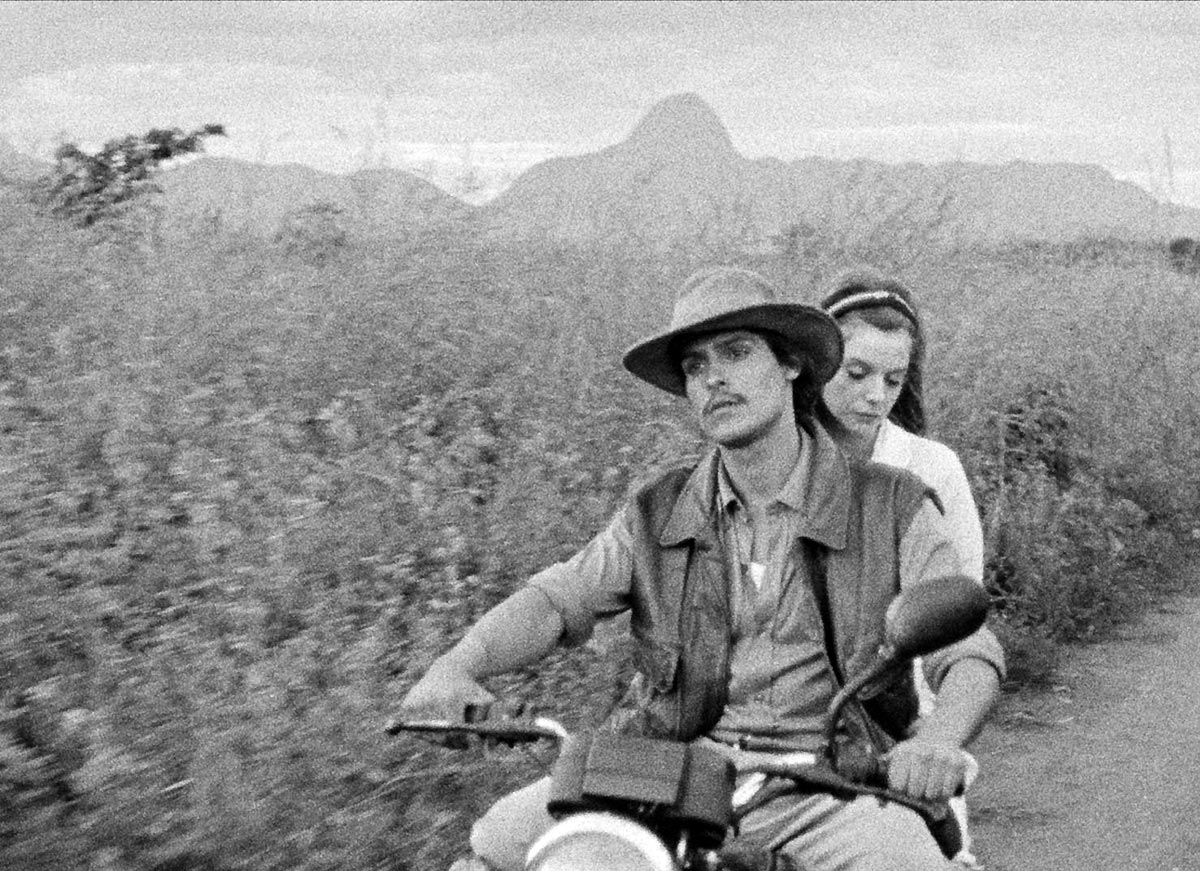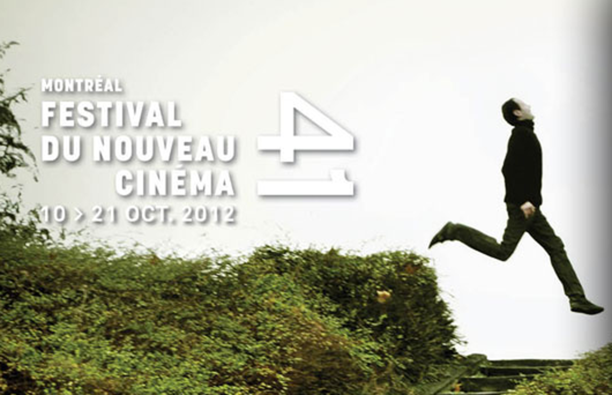
Directed by Miguel Gomes
Written by Miguel Gomes
Portugal, 2012
With his third feature, Portuguese critic-turned-auteur Miguel Gomes has proven himself to be a director in complete control of his craft. Tabu is a film of artistic cool – breaking classic genre conventions in the most crafty and affectionate way by consistently subverting the narrative in a beautiful dreamlike style. The film is divided into two parts: The first section is set in modern day Lisbon and titled Paradise Lost. It follows Aurora, an elderly cranky woman who spends her last days suffering from paranoia and the emotional burden of a troubled past. The second section, titled Paradise, is set in Mozambique in the 1960s, and tells the story of her uncontrollable and obsessive relationship with a man named Venturo, deep in the jungles of Africa. These two chapters are preceded by an enigmatic prologue, which turns out to be a short film within the film about a courageous adventurer who is still haunted by the death of his wife and decides to end his life. Much like his previous feature (Our Beloved Month of August), the Portuguese director presents an allegory fastened by an animal: In this case the crocodile, a reptile that symbolizes forbidden passions, deceit, treachery and hypocrisy. Tabu is a universal tale about love, passion, friendship and betrayal – as seen through the eyes of crocodile’s tears.
The subjects of Paradise Lost are all elderly lonely individuals: Apart from Aurora who is going senile, there is her lonely neighbour Pilar (Teresa Madruga), who’s so desperate for company, she’s saddened by the sudden rejection of a young couch surfer. Than we have Aurora’s maid Santa (sabel Muñoz Cardoso), whose life revolves around answering Aurora’s every request when not at her weekly book club. And finally there’s Venturo (Henrique Espírito Santo), a past flame who narrates the latter half of the pic. All four characters seem to share two things in common: Loneliness and regret. Santa escapes her reality in the books she reads, Pilar at the local theatre, Aurora through the dreams and nightmares she shares over coffee, and Venturo (hinted to have gone made) seems stuck in his past. Tabu suggests (subtly), that at a certain point in our monotonous lives, our minds begin to romanticize about our yesteryears and our soothing comfort comes from escapist fantasies and clouded memories of a time gone by. The first half of the film makes us believe that this is Pilar’s story, but it soon becomes the story of Aurora. After establishing the sadness of these two women in present day Lisbon, the film transports us to a colonial Africa. There, a young, newly married and pregnant Aurora has a affair with handsome Ventura, an aimless wanderer who relocated in Africa, to a life of gambling and illicit affairs. As the reoccurring image of the reptile conveys, their passion will end in the jowl of pain, which we already know from seeing Aurora’s later life. Their love culminates on the mountain of Tabu, appropriate considering the taboos the two engage in.
Gomes gives a nod to F.W. Murnau’s 1932 epic Tabu: A Story of the South Seas, by naming his work after that classic. Murnau’s film was originally shot as a half-talkie but released as a silent film. The second half of Tabu is the direct opposite, as Gomez effortlessly shifts gears omitting any audible dialogue except for a persistent (but suave) voice-over narration from one of the characters – combined with lush synchronized ambient sounds, a few sparse foley effects, and a soundtrack of Phil Spector’s greatest hits (including a Portuguese version of The Ronettes’ ‘Be My Baby’ and “Love is Strange”, both acting as connective tissue). Although completely different in styles, the two halves make an artistic whole. In Lisbon, Gomes is patient, holding his shots on moments of reflection and cinematographer Rui Poças shoots in sharp 35 mm black and white. The second (and superior) part is filmed exquisitely in grainy black-and-white 16mm and in a 4:3 Academy ratio. The lighting offers strong contrasts reminiscent of the best of German expressionist films and the pacing is more playful with plenty of deadpan wit, humour, and musical interludes. And although completely different, both halves make for an extremely satisfying whole.
Gomez has directed a film that channels the look and feel of classic Hollywood, and one that will transport you back to the golden age of cinema. Tabu is an exquisitely-cut gem, a rarity for our time, and perhaps the best film of the year.
Ricky da Conceição
Festival Du Nouveau Cinema runs Oct. 1st – 21st in Montreal. For a complete schedule of films, screening times, and ticket information, please visit their official site.




